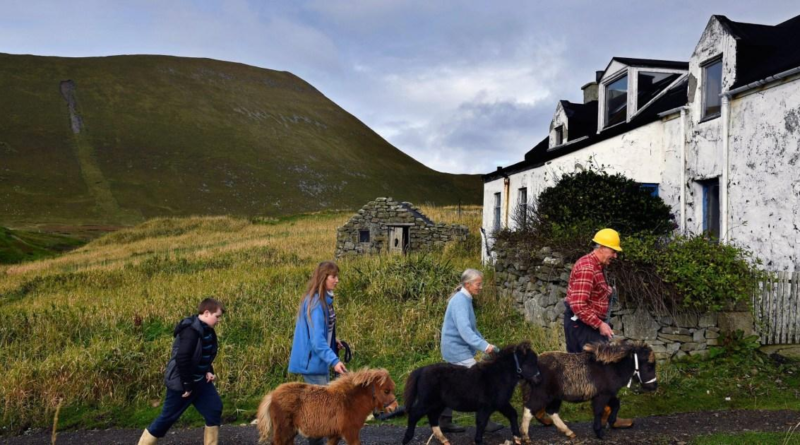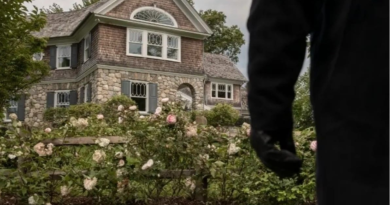Scotland: Shetland Island Foula where Christmas comes two weeks later – Metro.co.uk
NEWS… BUT NOT AS YOU KNOW IT
December 25 may have come and gone, but inhabitants of a remote Scottish island will not celebrate Christmas for almost two weeks.
Foula, the most westerly Shetland Island with a population of only 30, does not abide by the conventional Gregorian calendar and instead uses the ancient Julian calendar.
This metric, invented by Julius Caesar, was used in the UK until today’s calendar was formalised in 1853. But in Foula, which is 15 miles off the coast of the Shetland mainland, the Julian calendar has remained and Christmas will be celebrated on January 7.
Islanders traditionally celebrate Christmas with all the residents gathering in one house and are proud of their traditions.
‘It is not just part of our tradition but the world’s,’ one islander told MailOnline. ‘It is everybody else who changed, not us.
‘We are not unique. Other parts of the world, such as areas of Russia, still celebrate the old calendar.’
Foula was one of the final places to speak the old Norse language Norn before it died out in around 1800, when a lot of the islanders died in a smallpox spread.
The island of 1,265 hectares – around the size of the Islington borough of London – was then repopulated by Shetlanders who introduced English as the common language.
Despite its size, the island boasts spectacular hill and cliffside views across the north sea from the focal points of Hametun and Ham.
Ham is served by the occasional ferry to the Shetland mainland. The island has no Wi-Fi, although communication is helped through a Facebook community group.
It has no shops or facilities with residents relying on supplies being delivered by sea. Its northerly location also means it has some of the shortest days in the UK with the sun not rising until 9.13am today and then setting at 3.06pm.
The island was once home to 287 but the population has fallen despite residents getting running water in 1982 and electricity two years later.
But while the human population has declined, Foula has remained a hotspot for Shetland ponies and other types of wildlife including the red throated diver bird and great skua. Indeed the name Foula derives from the Old Norse word ‘fugley’ – which translates as ‘bird island’.
The majority of the islanders are crofters, a Scottish term for the keeper of land for animals. Sheep farming is a major driver for the local economy and it is also a hotspot for bird watchers.
And while there are not too many famous tourist attractions, one site of interest could be the lighthouse which stands at peak of the island as well as the old post office which closed in the 2010s.
Experience life after death at escape room where you plan your own funeral
Tourist ‘saw Loch Ness monster’ and says it’s not the colour CBBC would have us believe
A Welsh mountain sparked one of the UK’s wildest UFO conspiracies – but what happened?
Woman has hamster stuffed to look like a pole dancer with notes in its G-string
As well as their unusual Christmas date, Foula also has a different New Year – with Newerday, as they call it, falling on January 14.
Reverend Tom Macintyre of the Church of Scotland has been known to journey across to hold services for Christmas and weddings – although the weather was reportedly so dire one festive period that he gave up after three attempts.
As well as serving some parts of Russia, the Julian calendar from 45 AD is also observed by the Berber tribe in northern Africa.
Foula residents will, however, join in with conventional festivities and present swapping when they mark Christmas on January 7.
Get in touch with our news team by emailing us at webnews@metro.co.uk.
For more stories like this, check our news page.
Privacy Policy
Get us in your feed



